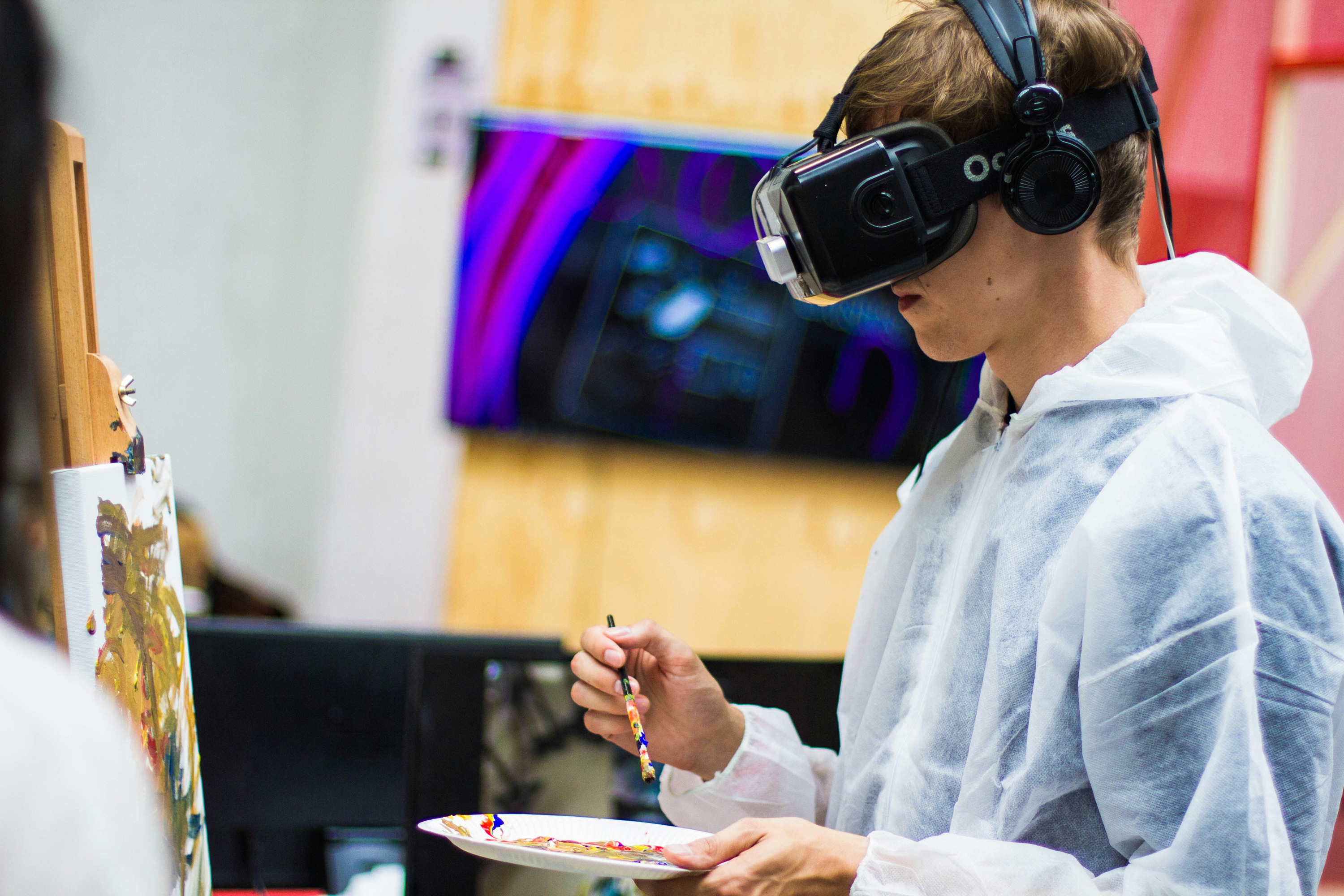Virtual Reality and Mental Health: Exploring the Potential Use
In recent years, Virtual Reality (VR) has transcended the realms of gaming and entertainment to become a powerful tool in healthcare, specifically mental health. The immersive experience VR offers can transport individuals to controlled environments designed for therapeutic purposes, creating a safe space where they can work through emotional and psychological challenges. As our understanding of mental health grows, VR stands out as a valuable tool in supporting remote work, relaxation, and stress relief, especially in office spaces. Its versatility allows for an array of applications that contribute to healthier, more productive work environments and offers hope for those dealing with mental health conditions.
One of the core appeals of VR in mental health is its immersive capability to simulate real-world scenarios or fantastical environments that reduce stress and anxiety. VR headsets can transport users from their immediate surroundings to a calming beach, a peaceful forest, or even a quiet mountain retreat within seconds. For many individuals working in high-stress environments, these virtual escapes can provide immediate relief and promote relaxation. Companies are beginning to integrate VR relaxation rooms, where employees can step in, wear a VR headset, and take a few minutes to unwind before diving back into work. This not only helps to reduce stress but can improve focus and productivity by offering a quick mental reset during the day.
Therapeutic Use
Apart from relaxation, VR is increasingly used in exposure therapy, which is an approach that helps individuals confront and reduce their fears and anxieties. Traditionally, exposure therapy has involved visualizing a feared object or situation, or in some cases, directly confronting it. VR offers a controlled, safe environment where individuals can experience and work through these fears without physical risks. For example, VR can simulate experiences such as public speaking, flying, or heights, helping individuals gradually face their anxieties and build resilience. With mental health disorders like anxiety and PTSD affecting millions of people worldwide, the ability to safely confront and work through these fears is invaluable.
Beyond individual therapy, VR has potential in corporate environments where remote work is prevalent. A common challenge of remote work is social isolation, which can lead to anxiety and depression. VR addresses this issue by creating virtual spaces where remote teams can collaborate and socialize as though they were physically together. Imagine a virtual office space where employees, represented by avatars, can meet, brainstorm, and even have informal “watercooler” conversations. This sense of shared space fosters community and combats isolation, bridging the social gaps that remote work can create. Some companies are already experimenting with VR platforms for remote meetings, finding it more engaging and immersive than standard video calls. The realistic feel of VR interactions can make employees feel more present and connected to their colleagues, improving both mental well-being and team cohesion.

VR Continues to Evolve
VR can also provide therapeutic support through guided meditation and mindfulness exercises. Guided VR meditation can combine soothing visuals, sounds, and narrated instructions to create a multi-sensory experience that calms the mind. For those struggling with burnout or high levels of work-related stress, VR meditation offers an immersive way to practice mindfulness and regain focus. Some VR applications even track the user’s heart rate and breathing, allowing the program to adjust the experience based on physiological responses, ensuring maximum relaxation. By integrating VR meditation into work breaks, companies can promote a culture that values mental well-being, which can lead to happier, more productive employees.
As VR continues to evolve, we can expect to see even more applications focused on mental health and wellness. Researchers are currently exploring VR’s role in treating addiction, as well as its potential for helping individuals with Autism Spectrum Disorder (ASD) develop social skills through simulated social interactions. Moreover, VR technology may soon integrate AI to create adaptive experiences that respond to a user’s specific mental health needs in real time. As these innovations become more accessible, VR could revolutionize mental health care, offering effective, engaging, and accessible support to individuals around the world.
Ultimately, VR offers immense potential as a tool for mental health support, blending technology with therapeutic practices to create a range of experiences tailored to the needs of individuals and workplaces alike. Whether providing a brief escape from daily stressors or creating collaborative spaces for remote teams, VR represents a new frontier in mental health that could bring about meaningful, lasting change for individuals and organizations.



